How can I support the project?
Every contribution helps sustain this unique project that seeks to preserve and transmit the historical truth about Fátima with independence and scientific rigor.
Why independence is essential
The widespread relativism now dominant in disciplines like history, sociology, and anthropology has effectively become the institutional and scholarly standard for legitimizing knowledge. Within these fields, the very concept of factual historical objectivity has been largely abandoned in favor of subjectivist and postmodern currents that privilege authorial interpretation over verifiable truth. This pattern is equally prevalent in modern ecclesiastical scholarship, including works on Fátima, where a postmodern mindset—prioritizing personal emotion and subjective interpretation, or mere 'opinionism'—frequently overrides objective analysis, coherence, and logic.
In direct opposition to this trend, the Corpus Historicum Fatimae Criticum reaffirms the positivist conviction that the historian's fundamental task is to reconstruct the past as faithfully as possible through the critical verification of sources. This commitment to methodological rigor constitutes the very essence of a scientific approach to history.
Who can participate or contribute?
Individuals, institutions, and scholars are invited to contribute in various ways:
Through donations or patronage in support of the research and publication process.
By acquiring limited editions of the Sister Lúcia–McGlynn statue, which directly fund the project.
By collaborating with documents, testimonies, or materials of relevance to the reconstruction of the Fátima events.
Through translation, editing, and peer-review work for future publications of the Corpus and its academic journal, Studia Critica Fatimae.
All contributions will be formally acknowledged in the publications or website of the Corpus, according to the nature of the collaboration.
Vision and Legacy
The Corpus Historicum Fatimae Criticum was conceived not merely as a historical research project, but as a long-term scientific enterprise aimed at preserving, organizing, and transmitting the entire historical legacy of Fátima to future generations of researchers and believers alike.
Its ultimate purpose is to bridge faith and history through the rigorous tools of scholarship, ensuring that devotion is illuminated — rather than obscured — by truth.
In this sense, the Corpus aspires to serve both the Church and the international academic community, contributing to the renewal of historical studies in the Catholic field and to the broader dialogue between faith and historical science.
There are various ways to support it:
Private donations
Subscription to the bimonthly journal Studia Critica Fatimae.
Acquisition of the publications in preparation.
Acquisition of one of the copies of the Sister Lúcia-Thomas McGlynn statue.
Participation as a cultural benefactor or institutional sponsor.
info@historiacritica.com
+ 40 784 812 387
Copyright © 2025. Historia Critica Fatimae - All rights reserved.


CONTACT
SHARE
FOLLOW
